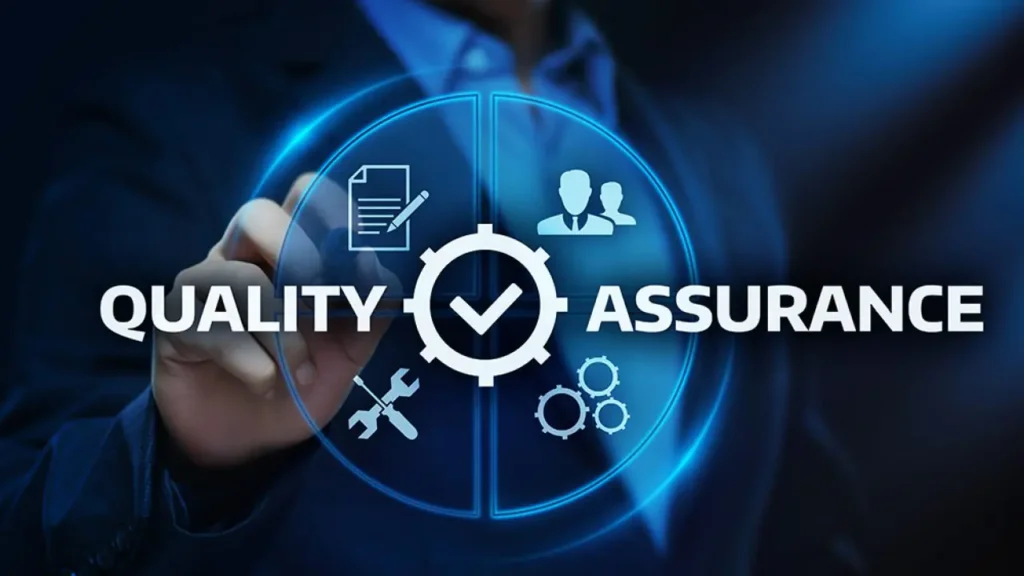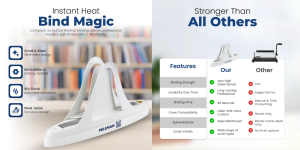In the dynamic landscape of modern industries, where innovation unfolds at a breathtaking pace, one essential element remains steadfast: quality assurance (QA). At its core, QA embodies the commitment to deliver products and services that meet or exceed customer expectations, all while maintaining stringent standards of reliability, functionality, and performance. This discipline serves as the bedrock of trust between businesses and consumers, ensuring that every interaction and transaction is underpinned by excellence.
The Evolution of Quality Assurance
Quality assurance, as a concept, has evolved significantly over the decades, mirroring the advancements in technology, the complexities of global supply chains, and the heightened expectations of consumers. In the early days, QA was primarily reactive, focusing on detecting defects post-production. However, the paradigm shifted with the realization that preventing defects at the outset is far more efficient and cost-effective than rectifying them later.
Key Components of Effective Quality Assurance
1. **Process Excellence**
Central to effective QA practices is the establishment of robust processes that govern every stage of product development and service delivery. These processes encompass everything from initial design and development to testing, deployment, and ongoing support. By standardizing workflows and implementing best practices, organizations can mitigate risks and optimize outcomes.
2. **Strategic Testing**
Testing lies at the heart of QA, serving as the frontline defense against defects and vulnerabilities. From unit testing conducted by developers to comprehensive system integration testing and user acceptance testing, each phase is meticulously designed to identify issues before they impact end-users. Automated testing frameworks have further revolutionized this landscape, enabling rapid iteration and validation.
3. **Compliance and Standards**
Adherence to regulatory requirements and industry standards is non-negotiable in QA. Whether navigating the intricacies of ISO certifications, FDA regulations for healthcare products, or GDPR compliance for data privacy, organizations must integrate these considerations into their QA frameworks. This ensures not only legal compliance but also enhances overall product integrity and customer trust.
4. **Continuous Improvement**
The pursuit of perfection is perpetual in QA. Continuous improvement methodologies such as Six Sigma, Lean, and Agile facilitate iterative enhancements across processes and products. By fostering a culture of learning and adaptation, organizations can stay ahead of market demands and deliver superior experiences consistently.
The Role of Technology in Modern QA
The advent of digital transformation has redefined the contours of QA, ushering in an era of unparalleled innovation and efficiency. Technologies such as artificial intelligence (AI) and machine learning (ML) have empowered QA teams with predictive analytics, anomaly detection, and pattern recognition capabilities. Moreover, cloud computing has democratized access to scalable testing environments, enabling seamless collaboration and rapid deployment cycles.
Challenges and Opportunities in QA
While the landscape of QA continues to evolve, it is not without its challenges. The proliferation of mobile devices and IoT (Internet of Things) ecosystems has introduced unprecedented complexity into QA efforts. Ensuring compatibility across diverse platforms and configurations remains a daunting task for QA professionals. Furthermore, the rising demand for speed-to-market often conflicts with the meticulousness required for comprehensive testing.
However, these challenges also present fertile ground for innovation. The emergence of DevOps practices, which integrate development and operations seamlessly, has streamlined QA processes and accelerated time-to-market without compromising on quality. Similarly, crowdtesting platforms harness the collective intelligence of global testers to conduct real-world testing scenarios, uncovering critical insights and ensuring robust QA outcomes.
The Human Element: Building a Skilled QA Team
Beyond technology and processes, the human element remains indispensable in QA. Cultivating a skilled workforce equipped with domain expertise and a passion for excellence is paramount. QA professionals are not merely gatekeepers of quality; they are champions of customer satisfaction and custodians of brand reputation. Investing in training and development ensures that QA teams stay abreast of emerging trends and possess the agility to navigate evolving challenges.
Case Studies: Exemplifying QA Excellence
1. **Tesla Motors: Redefining Automotive QA**
Tesla Motors exemplifies a proactive approach to QA, leveraging real-time data analytics and over-the-air updates to continuously improve vehicle performance and safety. By embedding QA into the fabric of its agile development processes, Tesla has set a benchmark for innovation and reliability in the automotive industry.
2. **Amazon: Elevating E-commerce Standards**
Amazon’s commitment to QA extends beyond its e-commerce platform to encompass cloud services through Amazon Web Services (AWS). Rigorous testing protocols ensure uptime, security, and scalability for millions of users worldwide, reinforcing Amazon’s reputation as a leader in cloud computing.
The Future of Quality Assurance
Looking ahead, the future of QA promises to be transformative. Advancements in AI-driven testing tools will enable predictive QA, preemptively identifying potential issues based on historical data and real-time analytics. Augmented reality (AR) and virtual reality (VR) technologies will revolutionize user experience testing, offering immersive insights into product usability and functionality.
Furthermore, the integration of blockchain technology holds the potential to enhance transparency and traceability in supply chain QA, mitigating risks associated with counterfeit products and ensuring authenticity across global markets.
Conclusion
Quality assurance stands at the nexus of innovation and reliability, embodying the unwavering commitment of organizations to deliver excellence in every product and service. As industries evolve and consumer expectations soar, QA remains indispensable in safeguarding trust and fostering sustainable growth. By embracing technological advancements, nurturing skilled professionals, and embracing a culture of continuous improvement, organizations can not only meet but exceed the exacting standards of the modern era.
In essence, QA is not merely a process; it is a testament to the relentless pursuit of perfection, ensuring that each product and service reflects the values of integrity, reliability, and customer-centricity. As we navigate the complexities of the 21st century, one truth remains clear: quality assurance is the cornerstone upon which enduring success is built.
FAQs (Frequently Asked Questions)
1. What is Quality Assurance (QA)?
Quality Assurance (QA) refers to the systematic process of ensuring that products or services meet specified requirements and standards. It involves establishing frameworks, conducting tests, and implementing measures to prevent defects and ensure consistency in quality.
2. Why is Quality Assurance important?
QA is crucial because it helps organizations deliver products and services that meet customer expectations. It enhances reliability, functionality, and performance while minimizing risks and ensuring compliance with regulatory requirements.
3. What are the key components of effective Quality Assurance?
Effective QA includes process excellence (standardized workflows and best practices), strategic testing (comprehensive testing phases from development to deployment), compliance with standards and regulations, and continuous improvement (adopting methodologies like Six Sigma and Agile).
4. How has technology influenced Quality Assurance practices?
Technology has revolutionized QA with advancements like AI and machine learning for predictive analytics, cloud computing for scalable testing environments, and automation for rapid iteration and validation. These tools enhance efficiency, accuracy, and speed in QA processes.
5. What are the challenges in Quality Assurance?
Challenges in QA include managing complexity in mobile and IoT environments, balancing speed-to-market with thorough testing, and ensuring compatibility across diverse platforms. However, these challenges also drive innovation and improvement in QA practices.
6. How can organizations build a skilled QA team?
Building a skilled QA team involves investing in training and development, fostering domain expertise, and cultivating a culture of continuous learning and adaptation. Skilled QA professionals play a critical role in maintaining high standards of quality and driving organizational success.
7. What are some examples of companies known for their exemplary QA practices?
Companies like Tesla Motors, known for integrating QA into agile development processes to improve vehicle safety and performance, and Amazon, renowned for rigorous QA in e-commerce and cloud services through AWS, exemplify best practices in QA across different industries.
8. What does the future hold for Quality Assurance?
The future of QA is poised for transformation with advancements in AI-driven testing tools for predictive QA, AR/VR technologies for enhanced user experience testing, and blockchain for supply chain transparency. These innovations will redefine how organizations ensure quality and reliability in the digital age.
9. How does Quality Assurance contribute to customer satisfaction?
QA contributes to customer satisfaction by ensuring products and services consistently meet or exceed expectations for quality, reliability, and performance. It builds trust, enhances brand reputation, and fosters long-term customer loyalty.
10. What role does Quality Assurance play in regulatory compliance?
QA plays a critical role in regulatory compliance by ensuring that products and services adhere to industry standards and regulatory requirements. This includes areas such as data privacy (e.g., GDPR compliance), healthcare (e.g., FDA regulations), and environmental safety (e.g., ISO certifications).







